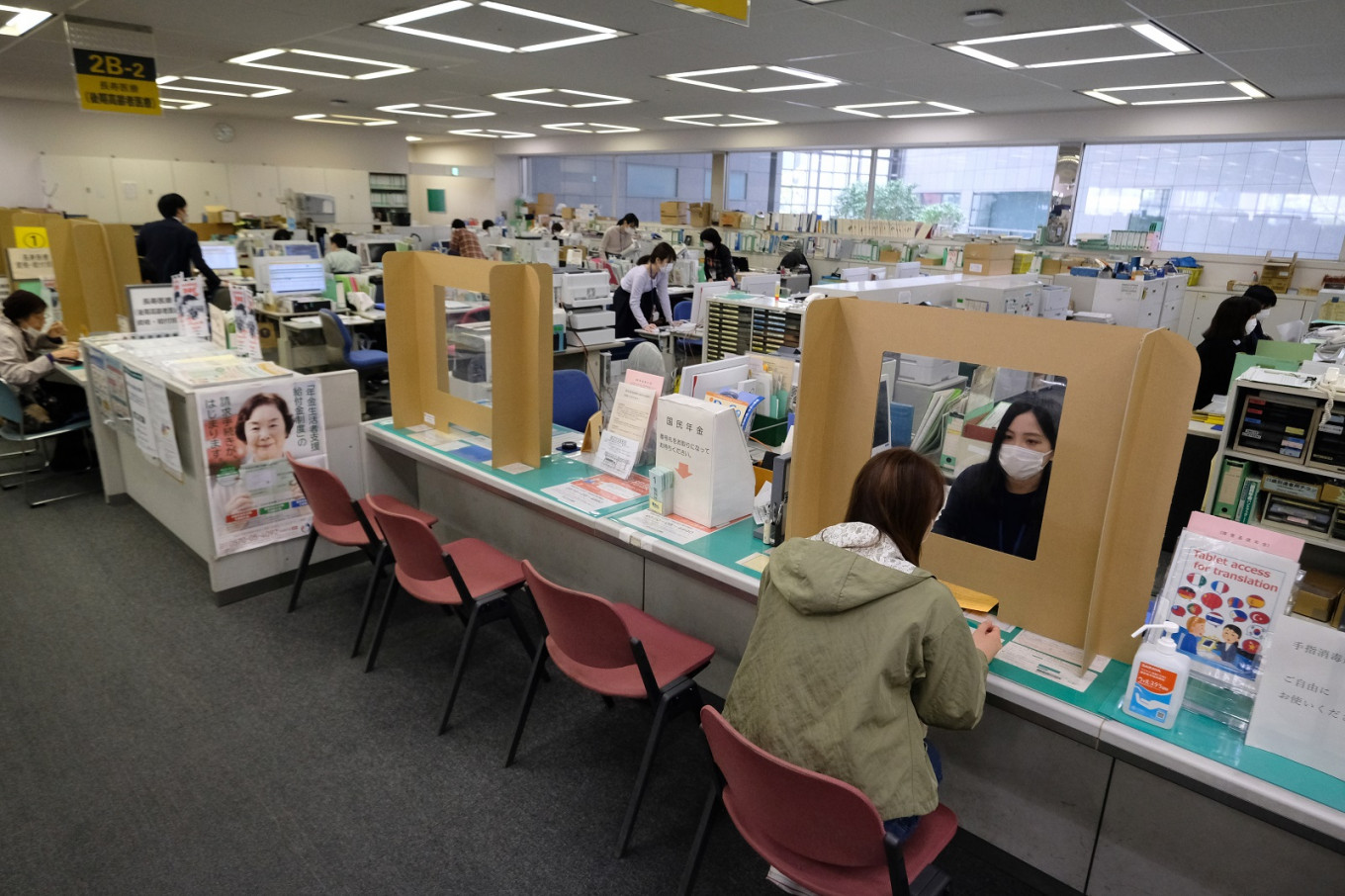Popular Reads
Top Results
Can't find what you're looking for?
View all search resultsPopular Reads
Top Results
Can't find what you're looking for?
View all search resultsTokyoites leaving bustle behind as pandemic proves catalyst for change
Change text size
Gift Premium Articles
to Anyone
A
s companies close offices in central Tokyo or encourage employees to work from home due to coronavirus pandemic worries, young people are relocating to the suburbs where rents are cheaper, space less at a premium and nature nearer the doorstep.
With Japanese work practices changing, fewer young people are inclined to live in high-rent shoebox-sized apartments near central Tokyo's business districts, rather they are prioritizing lifestyle when choosing where to reside.
Yutaka Kanai, chief product officer of xenodata lab, a Tokyo startup specializing in AI-based data analysis, recently moved from central Tokyo to Fujisawa in Kanagawa Prefecture, south of Tokyo, a city with stunning coastlines in which he has longed to live.
"The biggest reason I moved away from Tokyo is that I didn't have to go to the office," said Kanai, who is a keen surfer. He now lives in a house right on the beach.
The IT worker is now pursuing a better work-life balance, saying he can go surfing every morning just as easily as going for a run.
Kanai's workspace has also expanded. As his company started encouraging teleworking, he was spending his days in his Tokyo apartment, working on a laptop in his living room. But he can now use three monitors in his larger home office.
"I feel less stressed since my workspace is now larger," he said.
Kanai is one of many who have started re-evaluating what "home" means to them after the Tokyo metropolitan government in late March called on residents to refrain from going outside for nonessential reasons due to the virus.
Since late March, the number of views on the real estate and housing information site Suumo, has surged. Such an increase is unusual as traffic numbers tend to fall after the January to March period when new students and workers try to find apartments before Japan's academic and fiscal years start in April.
Read also: Twenty years on, Japan government's digital ambitions still stuck in piles of paper
According to the website run by Recruit Sumai Co., a Recruit Holdings Co. group company, suburban properties have been attracting attention, with the city of Chigasaki, Kanagawa Prefecture, seeing a dramatic 90 percent uptick in the number of views in May compared with just a few months earlier. Traffic to listings in Chuo Ward in the city of Chiba, east of Tokyo, doubled in May from the figure in January.
"In order to work comfortably at home, space and quiet are regarded as more important than before, and that's why newly built houses in some popular suburban areas are gaining appeal," said Yoichi Ikemoto, the chief editor of Suumo, Japan's major housing information website.
Up until now, splitting time between locations in central Tokyo and the suburbs or countryside was mainly for older people, but it is becoming more common among those in their 30s with annual incomes in the four to six million yen range, he added.
Given the current climate, a service that allows long-term stays in houses located in suburban areas or the countryside is also attracting attention.
The number of newly registered members of "ADDress," a service through which members can use more than 50 properties nationwide for 44,000 yen ($415) per month, has increased sharply since January.
There are many applications from office workers in their 20s and 30s living in Tokyo, and houses in the city of Narashino, Chiba Prefecture, where it is easy to commute to Tokyo in cases of emergency, have been flooded with reservations, according to the Tokyo-based ADDress.
Although the state of emergency declared over the coronavirus crisis was lifted in May and the economy is beginning to recover, Ikemoto expects some people who have become more accustomed to working from home will consider moving to make the most of their more laid-back life.
But the vast majority, he believes, will remain city dwellers.
"More people will choose reasonable detached houses...in the suburbs rich in nature or those with commercial facilities," Ikemoto said. "However, I don't think there will be a great migration to the suburbs from central Tokyo, which has many fashionable shops, commercial complexes and educational options."











